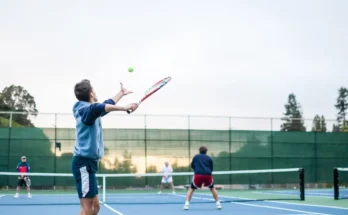The Global Language of Sports:
Across continents and time zones, there exists a language spoken not with words, but with passion, perseverance, and pride. That language is sports. Regardless of the country, background, or belief system, people everywhere engage in sporting events as a way to connect, express identity, and build communities. From the crowded streets of Rio to the silent greens of Augusta, sports are more than just games. They are cultural movements, powerful expressions of national spirit, and binding forces among diverse groups of people.
In this deep dive into the world of sports, we explore the most beloved games across nations, the people who breathe life into them, and the ripple effect they leave on societies both economically and emotionally.
The Kingdoms of Passion:
- Football in Brazil
In Brazil, football is more than a game. It is a national identity, a rhythm that pulses through every favela and metropolitan city alike. The country’s deep-rooted love for the sport began over a century ago and has grown into an inseparable part of its culture. From legends like Pelé and Ronaldinho to modern heroes like Neymar, Brazilians see football not just as entertainment but as art.
Children play barefoot in the streets with makeshift balls, dreaming of wearing the iconic yellow jersey one day. The emotional highs and lows of international tournaments ripple through the country, with businesses closing during important matches and fans flooding the streets with celebrations or tears. Football unites Brazil in a way few other things can.
- Hockey in Pakistan
Before cricket dominated the scene, field hockey was Pakistan’s pride and glory. The country has a rich legacy in hockey, having won multiple Olympic medals and World Cups. From the 1950s through the 1980s, Pakistan was considered a powerhouse in the sport, known for its swift playing style and tactical brilliance.
Players like Sohail Abbas, Hassan Sardar, and Shahbaz Ahmed Sr. became legends of the game. International victories in hockey once ignited the same patriotic fervor that cricket does today. Although the popularity of hockey has waned in recent decades due to lack of funding and mismanagement, the love for the game still lives on among older generations and in certain provinces.
Reviving the sport remains a challenge but also an opportunity. With the right investments and grassroots programs, Pakistan has the potential to reclaim its position on the world stage in field hockey.
- Ice Hockey in Canada
Canada’s icy terrain has naturally given rise to one of the most thrilling and fast-paced sports on the planet: ice hockey. Canadians are not just fans; they are stewards of the game. Hockey is introduced to children at a very young age and is woven into the fabric of community life, particularly in small towns where the local rink is a gathering point for all.
Beyond the slap shots and saves, hockey in Canada is about resilience, teamwork, and grit. It reflects the country’s values of hard work and unity. Internationally, Team Canada is a powerhouse, and each Olympic appearance is accompanied by a wave of patriotic fervor.
- Sumo Wrestling in Japan
While modern sports dominate much of the global scene, Japan offers a glimpse into how ancient traditions still influence contemporary culture. Sumo wrestling is the quintessential example. It is not just a competitive sport but a spiritual and ritualistic practice that dates back over a thousand years.
Sumo ceremonies are steeped in Shinto customs. From the salt thrown to purify the ring to the rigid rituals before each bout, every move has significance. Despite the rise of Western sports like baseball and soccer in Japan, sumo maintains its stature as the sport that most strongly reflects the nation’s heritage and values.
- American Football in the United States
The United States is a melting pot of sporting interests, but American football undeniably reigns supreme. It is not merely a sport but a national institution. The Super Bowl is watched by over 100 million people annually and is arguably the most anticipated single-day sporting event in the country.
Football reflects American culture with its emphasis on strategy, competition, and showmanship. College football, especially in southern states, holds a religious-like significance, where fans live and breathe their team’s every move. The NFL, with its glitz and grit, showcases the best athletes while simultaneously serving as a massive economic and social phenomenon.
How Sports Shape Identity and Belonging?
- Sports as a Unifier
One of the most remarkable aspects of sports is their power to unify. Regardless of socioeconomic status, language, or background, cheering for the same team or participating in the same game builds a bond among people. This is particularly evident during international competitions like the FIFA World Cup or the Olympics, where rivalries may be intense, but respect and unity dominate.
Events like these help nations forge a collective identity. They present an opportunity for countries to assert themselves on the world stage, not through conflict or diplomacy, but through fair play and athletic prowess.
- Economic and Social Impact
The influence of sports goes well beyond emotion. It has tangible economic implications. Hosting large tournaments boosts tourism, creates jobs, and injects billions into local economies. Athletes turn into brands, stadiums become tourist attractions, and entire cities can experience revivals thanks to sporting success.
On a social level, sports serve as platforms for inclusion and change. Movements like Black Lives Matter found support through athlete activism in the NBA and NFL. Female athletes continue to push boundaries, from tennis to soccer, demanding equal pay and respect. Sports can be a catalyst for conversations that need to happen.
- Youth Development and Education
In developing nations, sports offer pathways out of poverty. Talented youth often find scholarships, sponsorships, or international opportunities that can transform not just their lives, but those of their families. Organizations around the world now use sport as a developmental tool—teaching discipline, teamwork, leadership, and goal-setting. For an authoritative explanation of how sports serve these roles across societies, see the Wikipedia page on Sport and Youth Development which outlines physical, psychological, and social impacts of sports participation
From football academies in Africa to community basketball leagues in the Philippines, sports are a global engine for youth empowerment and social upliftment.
The Emotional Landscape of Sports:
- Victory and Heartbreak
There is perhaps nothing as emotionally charged as a last-minute goal, a buzzer-beater, or a game-winning touchdown. Sports mirror life, with its highs and lows, triumphs and tragedies. The collective experience of watching or playing in a dramatic match bonds people in unique ways.
Teams become symbols of hope during tough times. A World Cup win can uplift a struggling nation. A gold medal can inspire generations. Equally, a loss can be deeply felt, a reminder of what it means to strive and fall short. That emotional complexity is what keeps fans coming back, year after year.
- The Role of Legends and Legacy
Great athletes transcend the sport itself. Think of Michael Jordan in basketball, Usain Bolt in sprinting, or Serena Williams in tennis—leadership lessons drawn from youth sports are notably discussed in this insightful LinkedIn article on the impact of sports on youth development These legends become cultural icons. Their stories inspire millions. Their determination and discipline become life lessons for fans far beyond the court or field.
Such athletes also shape the identity of their nations. They are ambassadors of excellence and serve as reminders that greatness often requires sacrifice and relentless passion.
Conclusion:
In the end, sports are much more than scores or statistics. They are living narratives that reveal the values, dreams, and spirit of a people. Whether it’s cricket echoing through Indian streets or hockey shaping Canadian winters, sports are deeply entwined with culture and identity. They teach us about fairness, resilience, and the beauty of human potential.
In a world often divided by differences, sports offer a common ground, a place where borders blur and the only goal is to play, to compete, and to connect.




